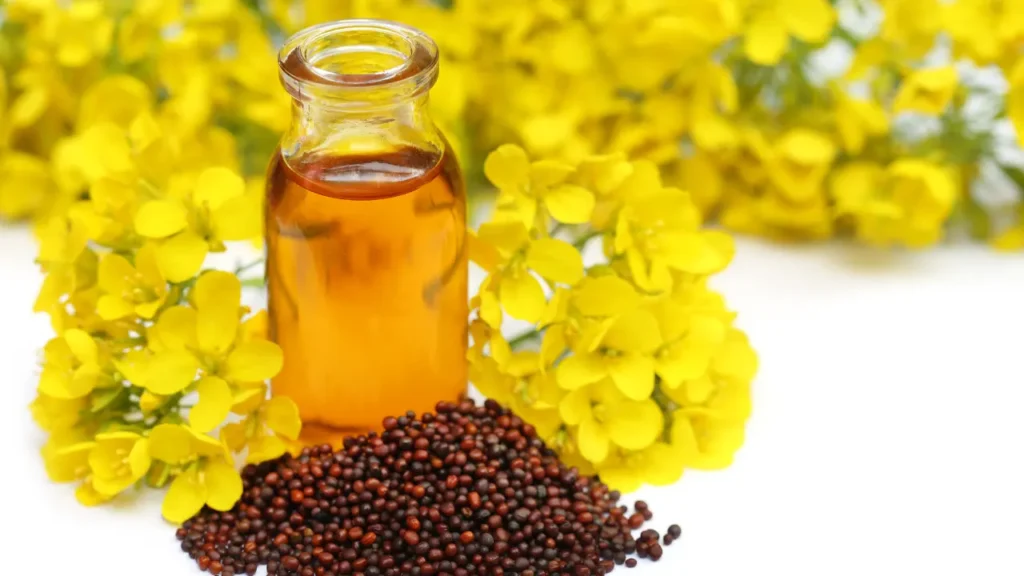A flowering plant from the Brassicaceae family known as black mustard (Brassica nigra) is widely farmed and consumed for its flavor and nutritional value. This strong spice, which is native to the Mediterranean, has been used in cooking and medicine for ages. Black mustard has special health benefits because of the wide variety of phytochemicals found in its seeds, such as glucosinolates, phenolic compounds, and essential oils. This article explores the chemistry of black mustard, as well as the health benefits, recommended dosages, possible side effects, drug interactions, and responsible use.
You May Also Like:
5 Great Nootropic Herbs for Energy, Focus, and Productivity
Bistort: Benefits, Dosage, Side Effects, Drug Interactions, and Other Important Information
Black Mustard: Benefits, Dosage, Side Effects, Drug Interactions, and Other Important Information is an original (NootropicsPlanet) article.
Nature of Black Mustard
The family Brassicaceae, which also includes well-known species like cabbage, broccoli, and kale, includes the flowering plant known as black mustard (Brassica nigra). Black mustard is a plant native to the Mediterranean area that has been grown for generations for its seeds, which are used as a spice and a source of cooking oil.
The plant is distinguished by its deeply lobed leaves and tall stem, which can grow to a height of up to 2-3 meters. Black mustard produces thick clumps of tiny, yellow flowers during the flowering stage, which later turn into seed pods. These tiny, rounded, black, or dark brown seeds are gathered from these pods and utilized in a variety of dishes and medications.
Black mustard seeds have a strong flavor and smell due to the presence of glucosinolates, specifically sinigrin. Sinigirn forms allyl isothiocyanate (AITC) with a strong scent when it is hydrolyzed by the enzyme myrosinase. This occurs when the plant tissue is disrupted. Black mustard seeds are also abundant in phenolic compounds and essential oils in addition to glucosinolates, which add to the plant’s health-promoting qualities.
This plant is rather resilient and adaptable and can be found growing in a range of climatic and soil conditions. Usually grown as an annual, the seeds are sown in early spring or late summer for a harvest in the autumn. The oil, which is frequently used for cooking and as the foundation for condiments like mustard, can be extracted from the seeds by pressing them or by grinding them into powder.
Health Benefits of Black Mustard
- Anti-inflammatory Effects: Numerous in vitro and in vivo studies have shown that the phenolic compounds and AITC contained in black mustard seeds have strong anti-inflammatory capabilities. It has been demonstrated that AITC regulates the expression of genes associated with inflammation and inhibits the generation of pro-inflammatory cytokines. Inflammatory diseases like arthritis, asthma, and inflammatory bowel disease may be lessened by these actions.
- Antibacterial Activity: Black mustard’s isothiocyanates have been proven to have potent antibacterial properties against a variety of bacteria, fungi, and yeasts. AITC has the potential to be used in food preservation since it is highly effective against foodborne pathogens like Escherichia coli, Salmonella spp., and Listeria monocytogenes.
- Anticancer Potential: In numerous in vitro and animal studies, black mustard seeds and the bioactive substances they contain have demonstrated anticancer effects. It has been discovered that AITC inhibits the growth of cancer cells and triggers apoptosis, or “programmed cell death.” Additionally, it can suppress the development of blood vessels necessary for tumor growth and regulate the activity of enzymes involved in the detoxification of carcinogens.
- Cardiovascular Health: Eating black mustard seeds may improve lipid profiles, lower inflammation levels, and reduce platelet aggregation, all of which may have an impact on cardiovascular health. Phenolic chemicals have antioxidant characteristics that can help prevent oxidative stress, a crucial component in the development of atherosclerosis.
- Neuroprotective Effects: New data point to a potential neuroprotective role for AITC and other isothiocyanates. Preclinical research on AITC has shown that it can prevent neurodegeneration in animal models of Parkinson’s disease and decrease the development of amyloid-beta plaques which is a hallmark of Alzheimer’s disease.

The Chemistry of Black Mustard
Glucosinolates are the most notable phytochemicals as they contain sulfur and give black mustard seeds their distinctive pungency and bitterness. As mentioned, when plant tissues are disturbed, the enzyme myrosinase hydrolyzes sinigrin, the main glucosinolate found in black mustard seeds, creating the powerful isothiocyanate known as allyl isothiocyanate (AITC). Black mustard’s strong flavor and aroma are due to AITC, which is also linked to a number of health advantages.
Black mustard seeds contain a range of phenolic substances, including flavonoids, phenolic acids, and lignans, in addition to glucosinolates. These substances contain antioxidant qualities and are associated with numerous health advantages, such as anti-inflammatory, antibacterial, and anticancer effects. Additionally, the monoterpene and sesquiterpene-rich essential oils found in black mustard seeds contribute to the plant’s distinct flavor and aroma.
Physiological Mechanisms of Action of Black Mustard
Those bioactive components are able to contribute to various health effects due to their physiological mechanisms of action involved in the body:
1. Microbiological Activity
AITC has the potential to be used in food preservation since it is highly effective against foodborne pathogens like Escherichia coli, Salmonella spp., and Listeria monocytogenes.
2. Potential to Combat Cancer
It has been discovered that AITC inhibits the growth of cancer cells and triggers apoptosis, or “programmed cell death.” Additionally, it can suppress the development of blood vessels necessary for tumor growth and regulate the activity of enzymes involved in the detoxification of carcinogens.
3. Cardiovascular Health
Black mustard seeds improve lipid profiles and help prevent oxidative stress, thus improving heart health.
4. Effects of neuroprotection
Preclinical research on AITC has shown that it can alleviate some symptoms of Parkinson’s disease and Alzheimer’s disease by preventing neurodegeneration in animal models and the development of amyloid-beta plaques.

Optimal Dosage of Black Mustard
The ideal dosage of black mustard seeds or their extracts has not been determined. However, it is thought that most people can safely and profit from consuming black mustard seeds when they are a part of a healthy diet. When using black mustard seed extracts or supplements, it is crucial to adhere to the manufacturer’s instructions and seek the advice of a healthcare provider to determine the right dosage based on specific needs and medical conditions.
Potential Side Effects of Black Mustard
Although consumption of excessive black mustard seed or prolonged exposure to AITC and other isothiocyanates can have negative effects, black mustard seeds are typically well tolerated. These may consist of:
- Digestive Issues: Consuming large amounts of black mustard seeds or their extracts might cause gastrointestinal issues like nausea, vomiting, diarrhea, and abdominal pain. When ingesting black mustard seeds or supplements, people with a history of gastrointestinal issues like ulcers or inflammatory bowel disease should use caution.
- Skin Irritation: AITC can result in contact dermatitis and skin irritation if you have sensitive skin.
- Allergic Reactions: Although uncommon, black mustard seeds can cause allergic reactions in some people. These reactions can range from minor ones like itching and hives to more serious ones like anaphylaxis. Avoiding black mustard seeds and associated goods if you have a known allergy to mustard or other Brassicaceae members.

Potential Substance Interactions with Black Mustard
Certain medications and other dietary supplements may interact with black mustard seeds and their bioactive components, possibly changing their efficacy or raising the possibility of side effects. Among these interactions are:
- Anticoagulants: Black mustard seeds’ antiplatelet properties and the bioactive substances in them may enhance the effects of anticoagulants like warfarin, which raises the risk of bleeding. Before ingesting black mustard seeds or supplements, speak with your doctors if you are using anticoagulant drugs.
- Antihypertensive Drugs: Black mustard seeds may boost the effects of antihypertensive drugs, resulting in hypotension, due to their vasodilatory and blood pressure-lowering properties. When ingesting black mustard seeds or supplements, people who are taking antihypertensive medications should keep a close eye on their blood pressure.
- Substrates for Cytochrome P450 Enzymes: Cytochrome P450 enzymes, which are in charge of a wide spectrum of medicines’ metabolism, can be modulated by isothiocyanates like AITC. The pharmacokinetics and effectiveness of drugs metabolized by these enzymes may be affected by this interaction. Before ingesting black mustard seeds or supplements, people who are taking drugs that are cytochrome P450 enzyme substrates should speak with their doctors.
Responsible Use of Black Mustard as a Nutritional Supplement
The following suggestions should be taken into account to maximize the health advantages of black mustard seeds while lowering the risk of negative effects and drug interactions:
- Include moderate amounts of black mustard seeds in meals and recipes as part of a balanced diet.
- When using black mustard seed extracts or supplements, it is crucial to adhere to the manufacturer’s instructions and get advice from a medical expert to determine the right dosage based on unique requirements and medical circumstances.
- Recognize possible adverse reactions and combinations with prescription drugs or other dietary supplements.
Black Mustard:
Conclusion
Black mustard has long been a staple in cooking and recipes. Recently, studies found that the black mustard plant contains a wide range of phytochemicals that contribute to its anti-inflammatory, anti-cancer, and anti-bacterial ability. Its unique profile of phytochemicals includes glucosinolates, essential oils, and several phenolic compounds.
Preliminary studies suggest these compounds greatly reduce oxidative stress and encourage wellness in promoting overall health. It is crucial for you to know that scientific research is essential to establish the efficacy, safety, and optimal dosage of black mustard supplement for human consumption. Hence, you should prioritize seeking professional advice from healthcare experts to ensure a well-informed and responsible approach to integrating this natural supplement into your health regimen.

References:
- Glucosinolates And Omega-3 Fatty Acids from Mustard Seeds: Phytochemistry and Pharmacology. Retrieved from:https://www.ncbi.nlm.nih.gov/pmc/articles/PMC9459965/
- Mustard Seed (Brassica Nigra) Extract Exhibits Antiproliferative Effect Against Human Lung Cancer Cells Through Differential Regulation of Apoptosis, Cell Cycle, Migration, and Invasion. Retrieved from:https://pubmed.ncbi.nlm.nih.gov/32365503/
- Biologically Active Compounds in Mustard Seeds: A Toxicological Perspective. Retrieved from:https://www.ncbi.nlm.nih.gov/pmc/articles/PMC8472142/
Important Note: The information contained in this article is for general informational purposes only, and should not be construed as health or medical advice, nor is it intended to diagnose, prevent, treat, or cure any disease or health condition. Before embarking on any diet, fitness regimen, or program of nutritional supplementation, it is advisable to consult your healthcare professional in order to determine its safety and probable efficacy in terms of your individual state of health.
Regarding Nutritional Supplements Or Other Non-Prescription Health Products: If any nutritional supplements or other non-prescription health products are mentioned in the foregoing article, any claims or statements made about them have not been evaluated by the U.S. Food and Drug Administration, and such nutritional supplements or other health products are not intended to diagnose, treat, cure, or prevent any disease.


